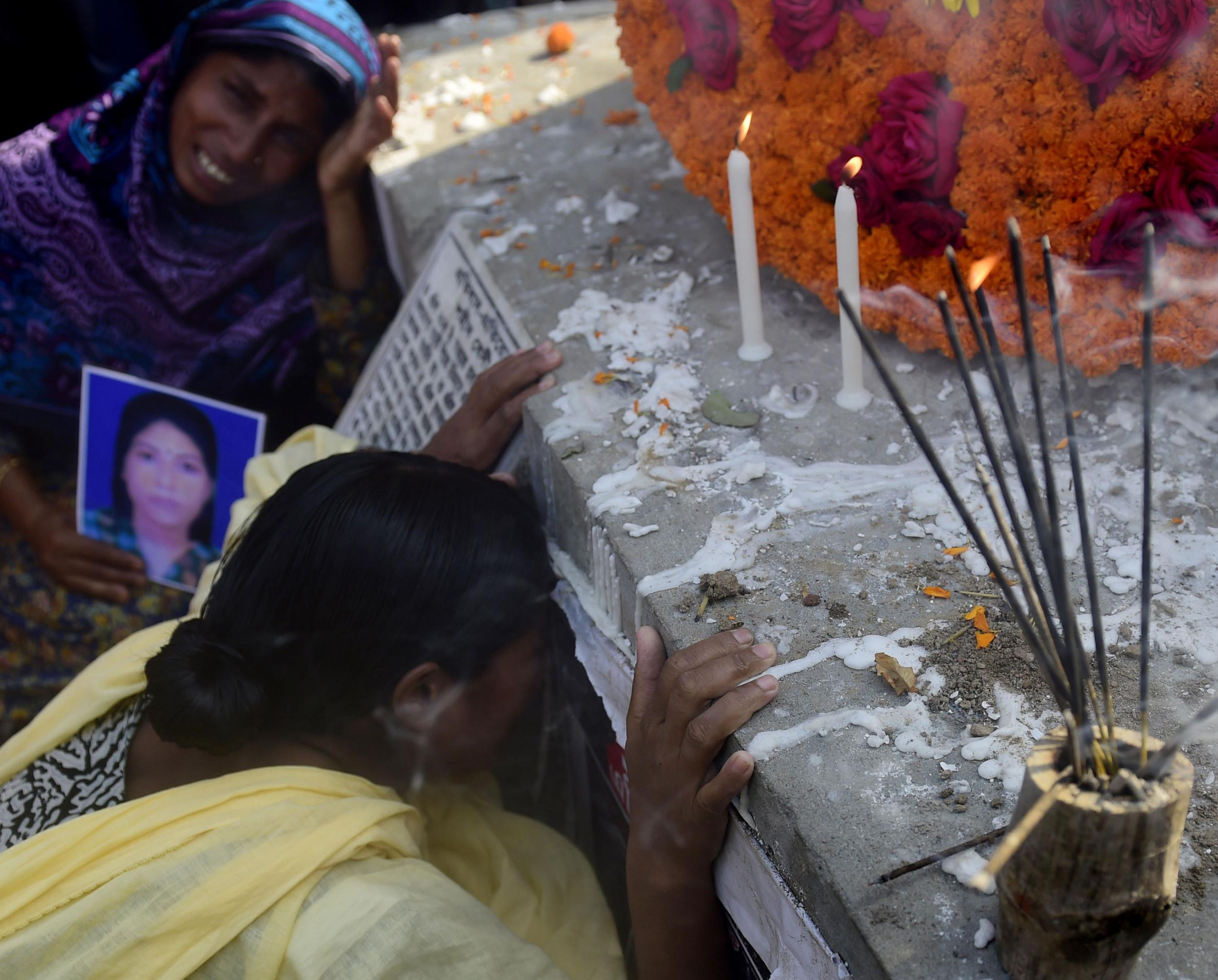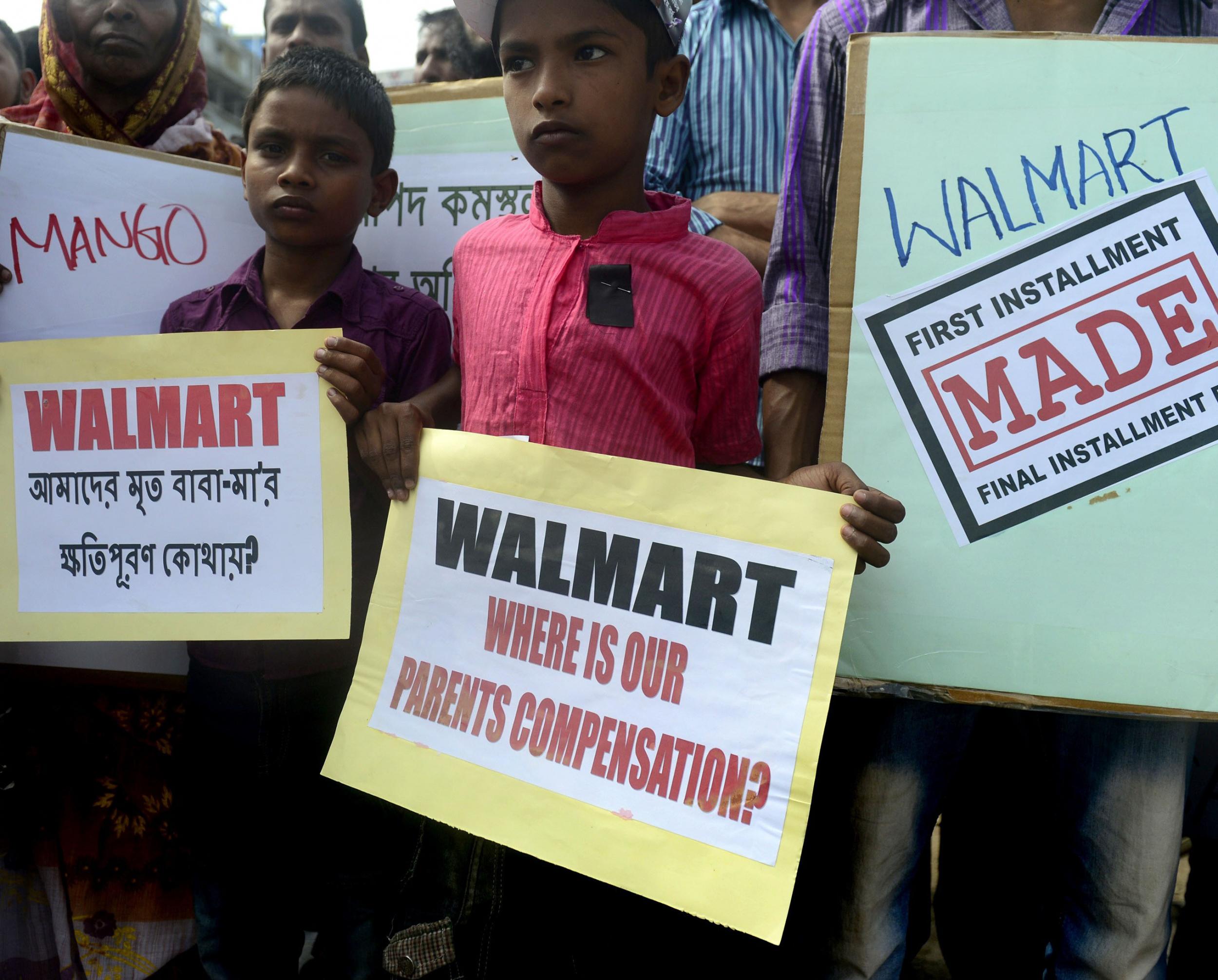Bangladesh factory collapse: 41 charged over deadly Rana Plaza tragedy
The defendants - who include the building's owner Sohel Rana - could face life in prison if found guilty

Your support helps us to tell the story
From reproductive rights to climate change to Big Tech, The Independent is on the ground when the story is developing. Whether it's investigating the financials of Elon Musk's pro-Trump PAC or producing our latest documentary, 'The A Word', which shines a light on the American women fighting for reproductive rights, we know how important it is to parse out the facts from the messaging.
At such a critical moment in US history, we need reporters on the ground. Your donation allows us to keep sending journalists to speak to both sides of the story.
The Independent is trusted by Americans across the entire political spectrum. And unlike many other quality news outlets, we choose not to lock Americans out of our reporting and analysis with paywalls. We believe quality journalism should be available to everyone, paid for by those who can afford it.
Your support makes all the difference.A Bangladeshi court will try 41 people for murder over the collapse of the Rana Plaza factory which killed over a 1,000 workers.
The eight storey garment factory - built on swampy unstable ground outside the capital city Dhaka - collapsed in April 2013 after the upper four floors were built without permission.
The disaster killed 1,135 workers, while 2,515 other injured people were pulled from the rubble alive.
It was one of the world’s worst industrial disasters in history.
The main defendant is the building’s owner, Sohel Rana, who is accused of ordering workers to return to their posts despite reports of cracking plaster the day before and an engineer ruling the building was unsafe.
The 41 could face life in prison if convicted.

Rana is in custody, 16 others are on bail and 24 people have fled.
The court issued arrest warrants against them on Monday.
The building housed five garment factories, supplying global brands such as Primark.
Bangladesh’s garment industry is worth a reported £16.7bn ($25bn) a year and 60 per cent of its exports go to Europe.
After the disaster, the international business community pledged to work to improve safety standards but two years on a report by New York University (NYU) found that only eight out of the 3,425 garment factories surveyed had made the necessary improvements.
Additional reporting by Reuters
Join our commenting forum
Join thought-provoking conversations, follow other Independent readers and see their replies
Comments